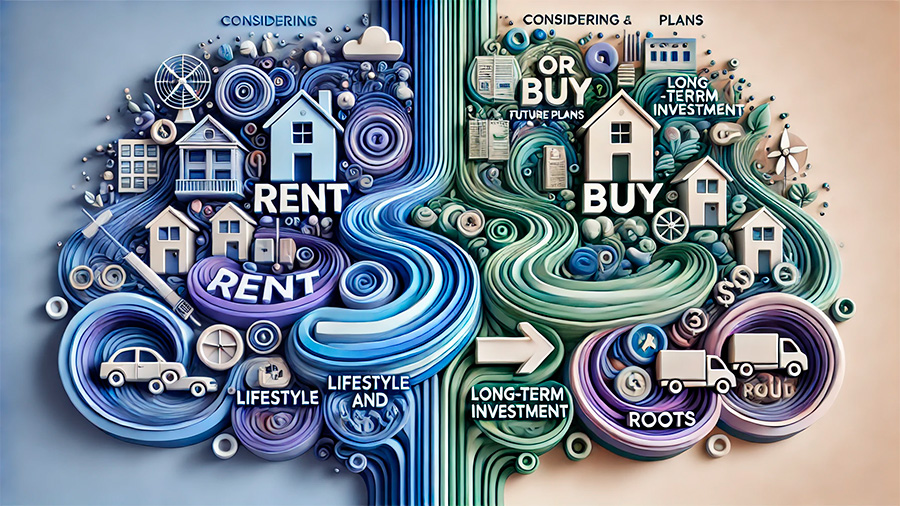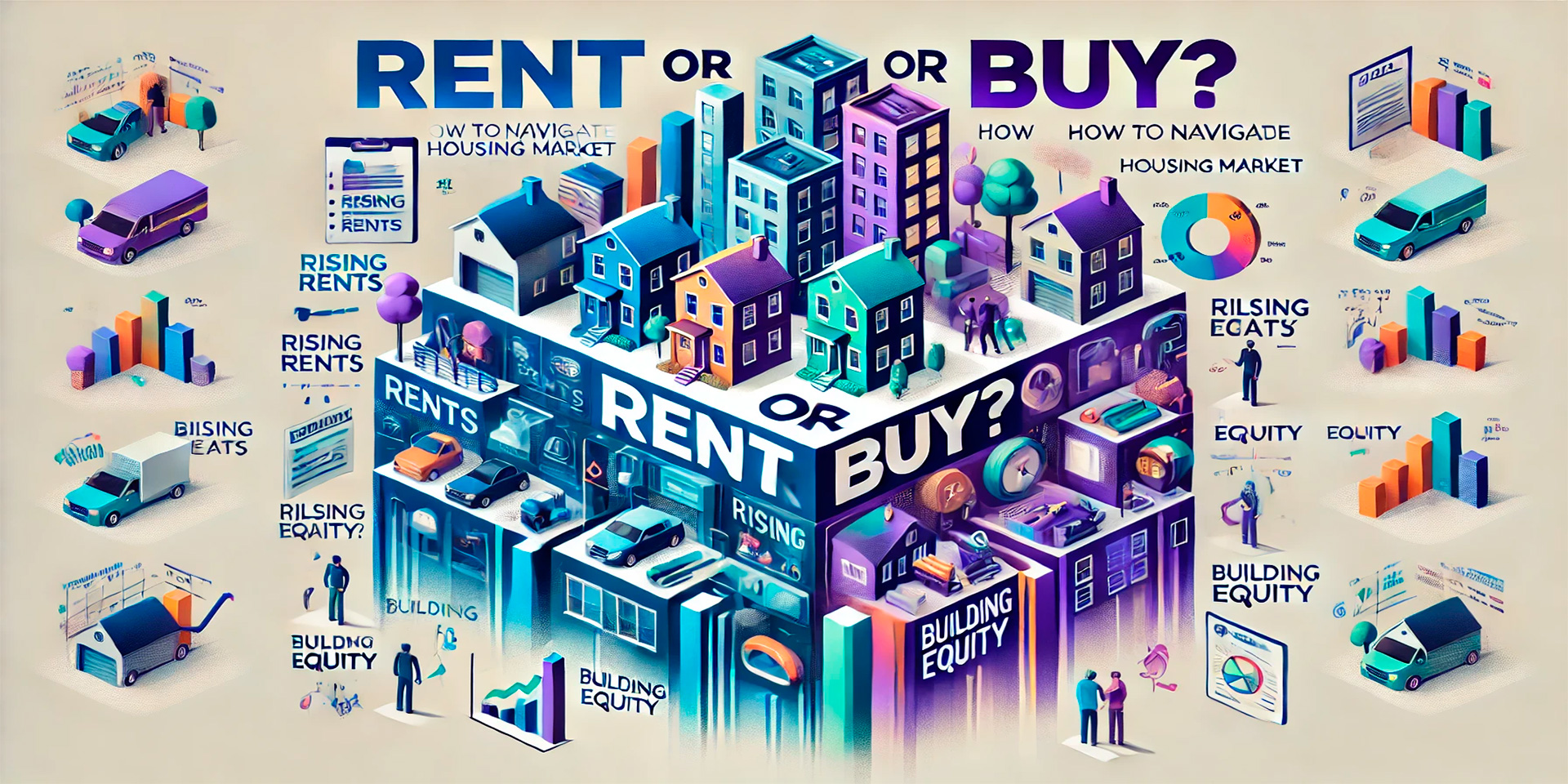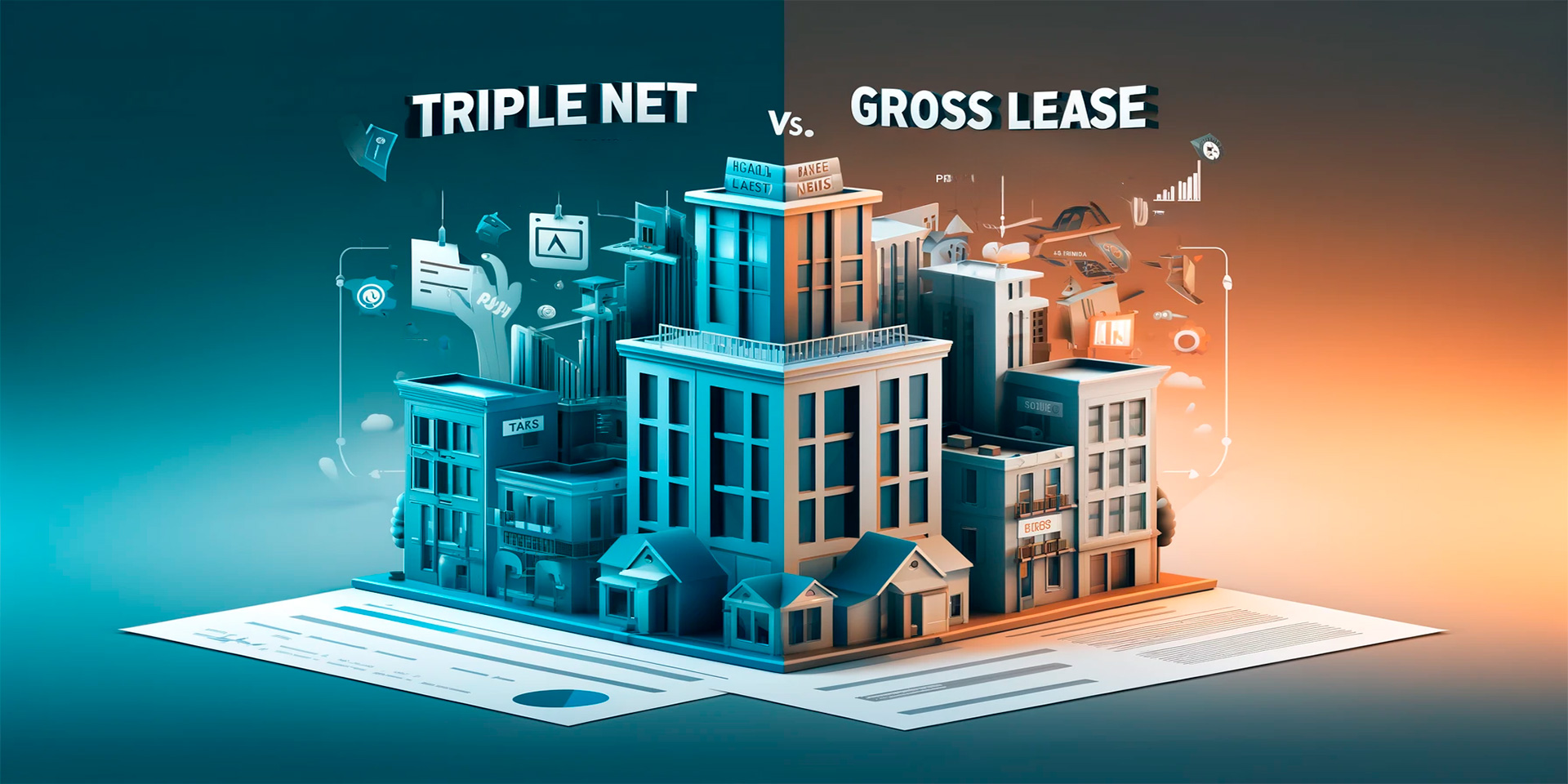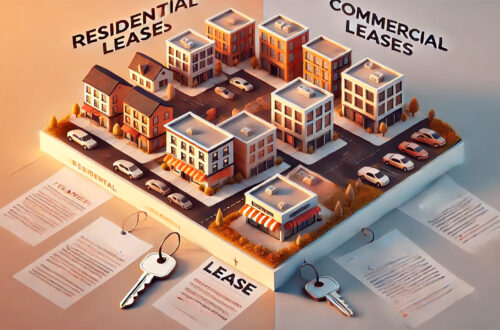In 2024, the decision to rent or buy a home is influenced by various factors such as interest rates, housing prices, and personal financial circumstances. Both renting and buying have their advantages and disadvantages, and choosing the best option depends on your long-term goals, lifestyle, and the current state of the housing market. This article will explore the key factors to consider when deciding whether to rent or buy in 2024, helping you make an informed decision that aligns with your needs.
The Financial Aspect of Renting vs. Buying
One of the most critical factors in deciding whether to rent or buy a home is the financial commitment involved. Both options require different levels of upfront investment, ongoing costs, and long-term financial impact.
Cost of Renting
Renting generally requires less upfront financial commitment compared to buying a home. Typically, renters are responsible for the first month’s rent, a security deposit, and sometimes a broker’s fee. Monthly rent payments are fixed for the lease term, providing some level of predictability for budgeting. Additionally, renters are not responsible for maintenance, repairs, property taxes, or homeowner’s insurance, which can save money in the short term.
However, renting comes with the downside of not building equity. While monthly payments provide a place to live, they do not contribute to ownership or long-term financial growth. Renters are also at the mercy of potential rent increases, which can be especially significant in competitive markets.
Cost of Buying
Buying a home involves higher upfront costs, including a down payment (typically 10-20% of the home’s price), closing costs, and various fees such as inspections and appraisals. Homeowners are also responsible for ongoing costs like mortgage payments, property taxes, homeowner’s insurance, and maintenance.
On the flip side, buying a home allows you to build equity over time, which can be a valuable financial asset. As you pay down your mortgage, you increase your ownership in the property. Additionally, if home values rise, your property may appreciate, offering the potential for profit when you sell. However, market fluctuations can affect the value of the home, making real estate an investment with both risks and rewards.
Market Conditions in 2024
Understanding the current housing market is essential when deciding whether to rent or buy. Market conditions such as interest rates, housing supply, and demand all influence whether one option may be more financially viable than the other.
Interest Rates and Affordability
In 2024, interest rates continue to play a significant role in housing affordability. When interest rates are low, mortgage payments are lower, making buying a home more attractive. If rates are expected to rise, locking in a lower rate sooner may save you thousands of dollars over the life of your loan. However, if interest rates are high, buying a home becomes more expensive, and renting may be the more affordable option in the short term.
For potential homebuyers, monitoring mortgage rates and understanding how they affect monthly payments is crucial. Conversely, renters can benefit from avoiding the financial burden of high interest rates, especially if they plan to wait for better market conditions before buying.
Housing Prices and Inventory
The state of housing prices and inventory also plays a role in the rent vs. buy decision. In competitive markets where housing prices are rising, renting may be the better option if you’re not ready to make a long-term financial commitment. A hot housing market often means higher prices and limited availability, making it more challenging to find a home within your budget.
On the other hand, if you’re in a buyer’s market with lower prices and more inventory, buying a home could offer long-term financial benefits. In 2024, many regions are experiencing a mix of both buyer’s and seller’s markets, so it’s important to assess the local market conditions before making a decision.

Flexibility vs. Stability
Your personal lifestyle and future plans are essential considerations when deciding whether to rent or buy. Both options offer different levels of flexibility and stability, depending on your long-term goals.
Flexibility in Renting
Renting offers a higher degree of flexibility, making it a great option for those who may need to relocate for work, plan to move in the near future, or prefer the ability to change homes easily. Leases typically last for 12 months, giving renters the freedom to move at the end of the lease term without the long-term commitment of homeownership.
Renting is also ideal for those who may not yet be financially ready to buy a home or who are uncertain about their future location. It allows you to avoid the hassle of selling a property if your circumstances change, making it a more convenient option for those who prioritize mobility.
Stability in Buying
Buying a home, on the other hand, offers long-term stability and roots you in a community. Homeownership provides the security of knowing that you won’t face sudden rent increases or be forced to move at the end of a lease. For those looking to settle down, raise a family, or invest in a long-term asset, buying a home offers stability and the opportunity to build equity.
In 2024, with remote work becoming more prevalent, many buyers are choosing to invest in homes outside of city centers, where they can enjoy more space and affordability. For those planning to stay in the same location for at least five years, buying a home may provide greater financial benefits over time compared to renting.
Building Equity vs. Saving for Other Goals
One of the major advantages of buying a home is the ability to build equity, which can lead to long-term financial growth. However, renting allows you to allocate your savings toward other financial goals.
Building Wealth Through Homeownership
When you buy a home, your monthly mortgage payments contribute to building equity in the property. Over time, as you pay down your mortgage, you increase your ownership stake in the home. If the value of your home appreciates, you stand to make a profit when you sell, making homeownership an attractive investment for long-term wealth building.
For many, homeownership is a key component of financial stability and retirement planning. Owning a home can provide a sense of security and serve as a valuable asset that grows over time.
Flexibility to Save and Invest Elsewhere
Renting, on the other hand, allows you to avoid the significant upfront costs associated with buying a home, such as the down payment and closing costs. This flexibility enables renters to save for other financial goals, such as investing in the stock market, starting a business, or saving for retirement.
For individuals who are not ready to commit to homeownership or who may not have the financial resources for a down payment, renting allows for more flexibility in how you allocate your savings. Rather than tying up your money in a home, you can invest it in other areas that align with your financial goals.

Maintenance and Responsibilities
When deciding between renting and buying, it’s important to consider the level of responsibility you’re willing to take on regarding property maintenance and upkeep.
Less Responsibility in Renting
One of the main advantages of renting is that the landlord is typically responsible for property maintenance, repairs, and upkeep. If the plumbing breaks or the roof needs repairs, it’s the landlord’s responsibility to fix these issues, saving renters both time and money. This hands-off approach allows renters to focus on their careers and personal lives without worrying about the responsibilities that come with homeownership.
Ownership Responsibilities
Owning a home, however, means that you are responsible for all maintenance and repairs. This can include everything from routine upkeep, such as landscaping and cleaning, to unexpected repairs, like fixing a broken furnace or replacing a leaky roof. These costs can add up over time and should be factored into your budget when considering homeownership.
For buyers who enjoy having control over their living space and who are prepared to handle the responsibilities of home maintenance, the benefits of owning a home often outweigh these added responsibilities.
Conclusion: Should You Rent or Buy in 2024?
Deciding whether to rent or buy a home in 2024 depends on your financial situation, long-term goals, and the current housing market conditions. Renting offers flexibility and lower upfront costs, making it an attractive option for those who value mobility or are not yet ready for the financial commitment of homeownership. On the other hand, buying a home provides stability, the opportunity to build equity, and long-term financial growth, making it a smart choice for those ready to settle down and invest in their future.
By weighing the pros and cons of each option and considering factors like interest rates, housing prices, and personal preferences, you can make an informed decision that best suits your lifestyle and financial goals in 2024.



